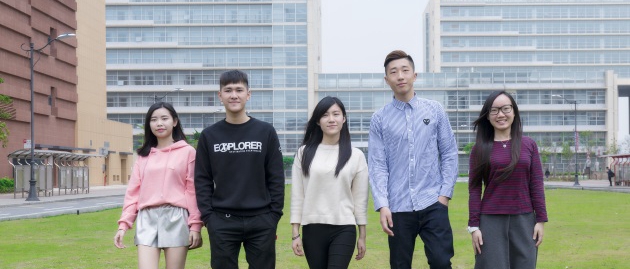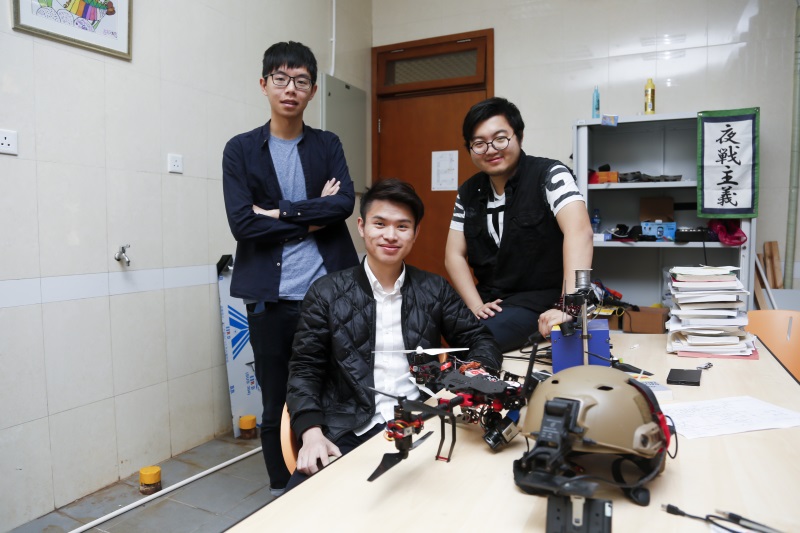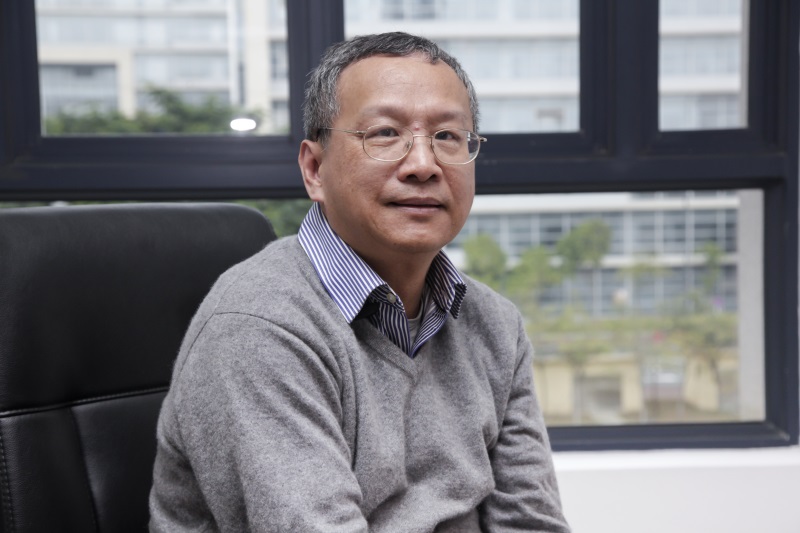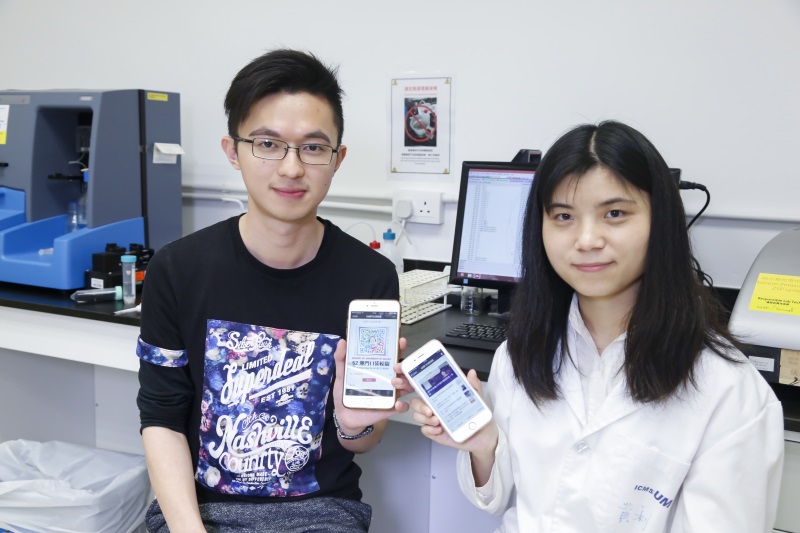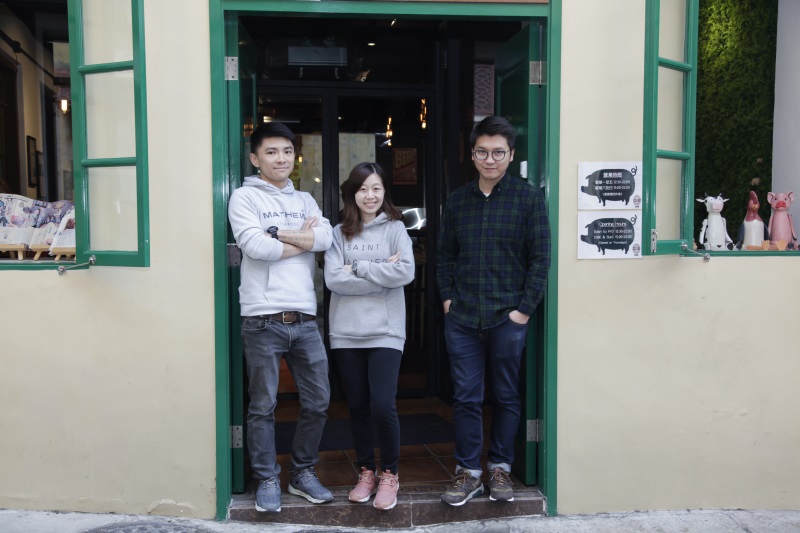Co-founding a Company with RMB 1 Million
Huber Hu, a second-year student from the Department of Electromechanical Engineering, last year co-founded a company in the Hengqin Entrepreneurship Valley with two fourth-year UM students from the Department of Electrical and Computer Engineering, namely Xian Yi and Chen Xiuyao. The trio invested RMB 1 million in the company. ‘In the short term, we hope to make a profit with karting and restaurant business. In the long term, we hope to become a complex that combines R&D and entertainment,’ Xian says.
‘The three of us used to live in the same residential college at UM, Chao Kuang Piu College. One of them was my roommate. This is their first time starting a business. I already have a science and technology company in Beijing. So I thought I could help them with my experience. Also, it will help me learn more about the business environment in Zhuhai and teach me how to run a company in a different field,’ Hu says. Hu founded his company in Beijing with the money he obtained from pledging three of his patents, two on coating and one on unmanned flying vehicles. His company in Beijing mainly focuses on the development and manufacturing of machines as well as the development and sale of medicines and medical devices. This year he plans to expand the scope of the company’s business to include research in the field of general aviation manufacturing, which is what most interests him. Hu advises against starting a business just for the sake of it. ‘It should be driven by an inner calling. In order to succeed, a business must be commercially viable and socially beneficial,’ he says.
Without Innovation There Would Be No Core Competitiveness
In February 2017, UM established an Innovation Centre. One of the missions of the Innovation Centre is to provide support to UM faculty and students who want to turn their innovative ideas into marketable products. ‘For college graduates in Hong Kong and mainland China, starting a business has become the third popular choice besides pursuing further studies and finding a job,’ says Prof Jerome Yen, head of the centre. Prof Yen was the director of internet finance at Hong Kong Applied Science And Technology Research Institute, and senior vice president and deputy chief risk officer at top 500 companies listed on Forbes and Fortune magazines. He has also worked at the University of Hong Kong, the Hong Kong University of Science and Technology, and the Chinese University of Hong Kong. ‘College students don’t necessarily have to find a job after graduation,’ he says. ‘They can develop entrepreneurial skills and mindset in college, starting with innovative ideas. Turning those innovative ideas into a business, a product, or a service will go a long way towards diversifying Macao’s economy in the long run.’
Establishing Companies in Both Hengqin and Macao
Prof Yen is currently coaching a group of UM students who will participate in the Bank of China Trophy One Million Dollar Macao Regional Entrepreneurship Competition. He hopes his experience will help the students achieve good results in the competition. One of the teams he is coaching is composed of postgraduate students from the Institute of Chinese Medical Sciences, some of whom are from Macao, others from mainland China. Huang Li, the chief operating officer of the company, says, ‘We registered our parent company in Hengqin in 2016. Earlier this year we registered a subsidiary in Macao. The parent company focuses on R&D activities, while the subsidiary focuses on marketing. What sets us apart is that we combine Chinese medicines with culture and internet technologies. Apart from medicines, we will also launch many innovative products. We hope to inject diversity into the local pharmaceutical industry.’
Chan Teng Ian, a master’s student of medical administration, is the chief operating officer of the Macao based subsidiary. He is also one of the two shareholders responsible for the R&D aspect. ‘The project we brought to the entrepreneurship competition this year is an improved version of an earlier project we did. Our first project was a campus WeChat communication platform, which is a success, because so far it has attracted the attention of over 5,000 people,’ he says. Asked how the innovation centre has helped their entrepreneurial attempts, he says, ‘Young people like us have passion, but we lack experience and strategy. Experts like Prof Yen from the Innovation Centre can bring us closer to success by helping us analyse the decision-making process. ’
Starting Businesses On and Off Campus
While some UM alumni have tasted success with science and technology companies, other UM students chose to open cafes on campus. Currently there are two student-run cafes on campus. The bosses of these cafes are winners of an earlier entrepreneurship competition co-organised by the Student Affairs Office and the Entrepreneurship Society under the Student’s Union. ‘After running the cafe for a year, I realised how difficult it is to start a business, but the hands-on experience improved my problem-solving skills, and after a trial-and-error process, business has improved a lot,’ says Chen Zihong, a third-year student from the Department of Management and Marketing, who is the boss of one of the cafes. Chen is grateful to the university for giving him the opportunity to realise his entrepreneurial dream. With this cafe experience under his belt, Chen plans to start a business after graduation from UM, but instead of opening a restaurant, he will consider starting a business that targets the international market.
Three other UM alumni, namely Chong Kei Hong and U Nok Man from the Department of Psychology, and Wong Chan Wai from the Department of Communication, have opened a restaurant in Taipa Village with another partner, who is their old classmate from high school. Because of the good quality of the food and the unique dining experience, the restaurant quickly became popular by word of mouth. Chong, U, and Wong not only were old classmates at UM; they were also old colleagues at UM. Before opening the restaurant, the trio considered the various risk factors, such as the skyrocketing rent and the increasing cost of raw materials, but they remained undeterred, never wavering in their determination to make their entrepreneurial dream come true. Other than their signature dishes, which completely retain the original flavours of similar dishes found in overseas restaurants, more than 70 per cent of the items on their menu are based on original or revised recipes. ‘Don’t assume that starting a business is extremely complicated. Just do it when you are still young,’ concur the three shareholders.
Innovation Centre Helps Students Start Businesses
The office in the Innovation Centre will be ready for use by the end of this year. The centre is like an incubator, helping UM faculty members and students turn their innovative ideas into marketable products and advising them on issues related to starting a business, such as how to protect intellectual property rights, how to raise funds, and how to evaluate risk factors. As part of its effort to support the Macao SAR government’s policy to encourage young people to start their own businesses, the Innovation Centre plans to provide funding to support innovative, market-oriented research. All UM students and alumni are eligible to apply to join the centre.

